All the Answers
Well-known member
Deputies: the proposal to change the official time in Argentina was revived - Infobae

Source:
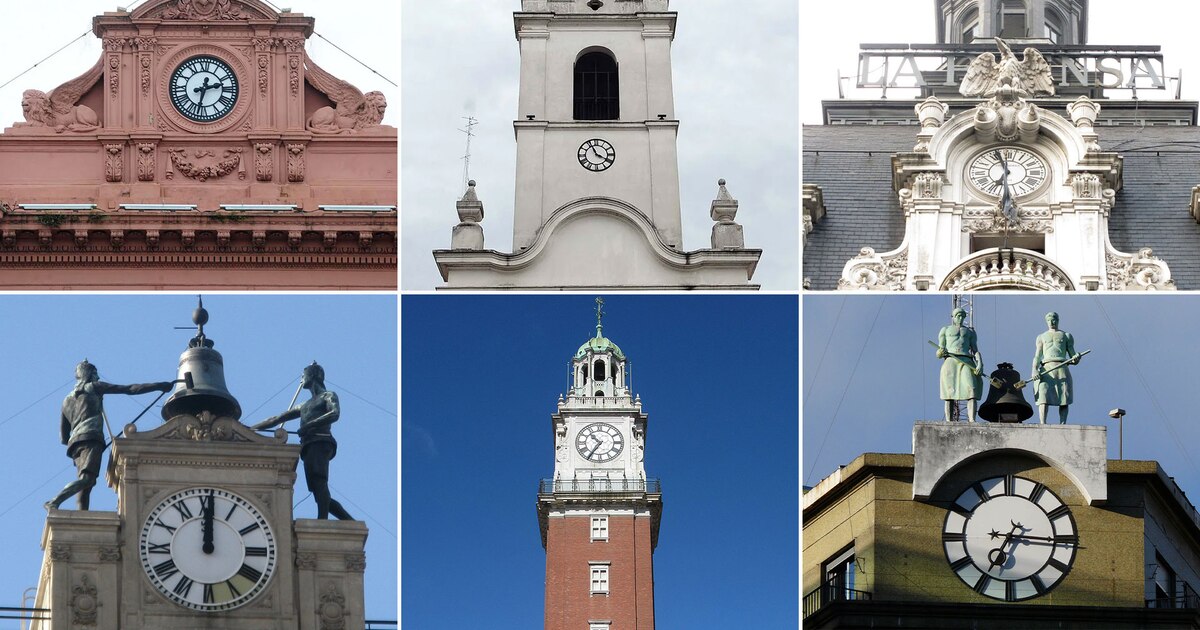
Diputados: se reflotó la propuesta para cambiar la hora oficial en Argentina
El proyecto de ley, presentado originalmente en 2022, propone retrasar 60 minutos el huso horario nacional durante los meses de otoño e invierno. Ayer fue elevado al Congreso para su tratamiento
April 04, 2024
The bill, originally presented in 2022 by Julio Cobos, proposes to delay the national time zone by 60 minutes during the fall and winter months. Yesterday he was brought to Congress for treatment
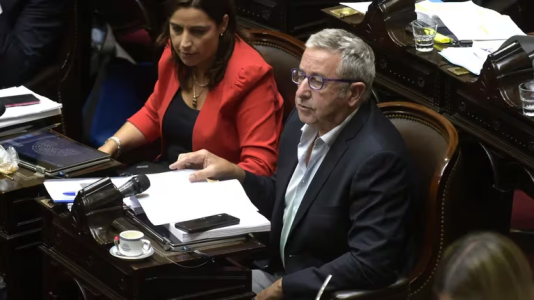
Julio Cobos during the particular treatment of the Omnibus Law (Gustavo Gavotti)
In an attempt to address the growing concern about energy savings in the country, UCR national deputy Julio Cobos once again presented a project to modify the time zone . The initiative proposes a significant change: moving the clocks back one hour (from -3 to -4) during the fall and winter months .
The Mendoza legislator explained that the proposal consists of, on the one hand, establishing as the official time throughout Argentina that of the time zone 4 hours west of the Greenwich meridian, which is actually the one that corresponds within the International System of Time Zones. Schedules. And, on the other, empower the Executive Branch to modify the time corresponding to the time zone three hours west of the Greenwich meridian, for the time corresponding to the summer period.
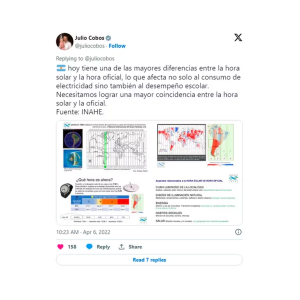
Julio Cobos retweeted this message from 2022 yesterday in which he made reference to the change of the time zone in the country
The project is not only limited to Argentina. It also invites Mercosur member countries to review their time zones to facilitate commercial and transportation activities. What's more, Chile will apply this change in the coming days .
The Government will send a project to modify the Education Law and “punish indoctrination” in schools
It may interest you:
The Government will send a project to modify the Education Law and “punish indoctrination” in schools
According to Cobos, the measure seeks to align the official time with solar time , which could have notable implications not only for electricity consumption but also for the school performance of students, who often begin their days in the dark . “Education is one of the main sectors affected by the discrepancy between solar time and official time,” argued Cobos.
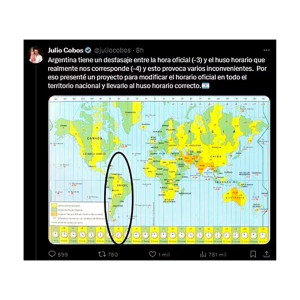
Another of Cobos' messages referring to the bill presented
This initiative, supported by a group of national deputies - including Mario Negri, Gabriela Lena, Silvia Lospennato, Roberto Sánchez, Jorge Vara and Víctor Hugo Romero -, resurfaces at a time when energy adjustment policies are at the center of the government agenda, under the mandate of Javier Milei .
According to the National Institute of Environment, Habitat and Energy (INAHE), “Argentina today has one of the largest differences between solar time and official time, which affects not only electricity consumption but also school performance.” In turn, the director of the Chronobiology Laboratory at the National University of Quilmes, Diego Golombek , said: “Being in the appropriate time zone for our place in the world means that we are exposed to the appropriate light for health, sleep and he alerts,” he said.
The scientist also recalled that Argentina modified its time zone around 57 times , which reflects a precedent of flexibility in adapting time zones according to needs.
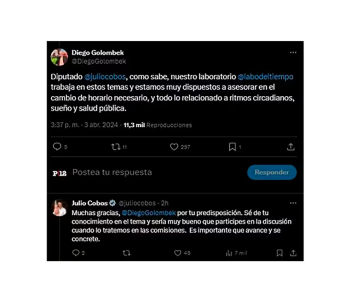
The virtual exchange with Diego Golombek in relation to the time zone change
Needle movement
The discussion about daylight saving time is not new in Argentina. Until 2009 , the country adjusted its clocks to make better use of daylight, a practice discontinued since then.Cobos, recalling these changes, suggests that the proposed adjustment is a return to previous practices that were aimed at energy savings. Law 26,350 , approved in 2007 , outlined time zone changes for summer and winter, a policy that the new project seeks to revitalize and adapt to current circumstances.
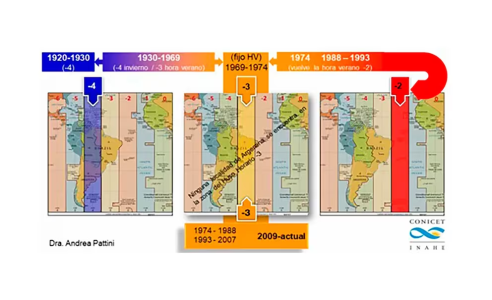
One of the graphs that Conicet presented regarding the variations of the official time in the country
The proposal to change the time zone has found echo in previous initiatives at the provincial level, such as the one presented by provincial deputy Jorge Andrés Difonso in 2022 in Mendoza, in addition to the actions taken by Cobos himself during his governorship in 2004 , which show a continuity in efforts to optimize the use of sunlight in favor of energy savings and citizen well-being.
The Mendoza legislator recalled at that time that “Governor José Octavio Bordón used the -4 time zone for the winter and the -3 time zone for the summer.”

